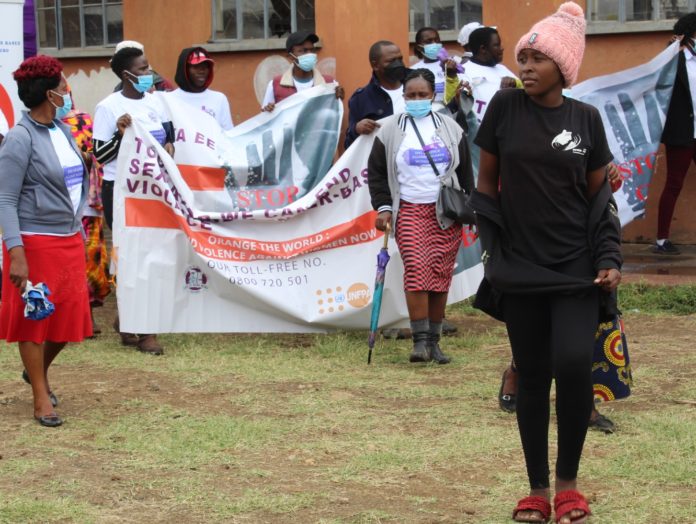By Florence Gichoya
Nairobi, Kenya: Stella Mungania Mwaromo is a trained nursing aid based in Nairobi. In 2014, her 10-year-old son Rogers Kiai was hit by a motorbike ‘Boda Boda’ while waiting for a school bus near their home in Kasarani, Nairobi. He was rushed to Kenyatta National Hospital where he underwent numerous head surgeries and physiotherapy sessions.
Stella, a single mother of three children lost her job and became a full-time caregiver to her son who needed round-the-clock care because of frequent convulsions.
“It was very painful to watch my son suffer. But he was my son, I had no option but to be there for him,” Stella said.
Without a source of income, Stella was not able to buy food, pay rent, school fees for her two daughters and son who was in and out of school because of his health. Many times, she would borrow money from friends and relatives in order to offset the medical bills.
Every week, she would spend at least Ksh 9,000 on medication only. She also had to take her son for at least 8 appointments per week to neurologists, and occupational therapists’ sessions.
Stella took up a nursing aid job with an employment agency, but it did not last long. Her employing agency refused to remit her dues and, in some months, she was paid less than her expected salary. She thinks her employer took advantage of her situation.
Although frustrated and desperate, Stella kept showing up for work, but when her debt burden became unbearable she quit. She has never received her dues since.
Stella’s son’s medical costs were so high that several times her son was ‘detained’ by the hospital because of unpaid bills. At one time, she had to present the hospital with a surety of her parents’ title deed so that her son could get needed surgery.
After taking care of her son for seven years, in September this year, her son passed away. Today Stella has an unpaid bill of Ksh 1.2 million at Kenyatta National Hospital and many other debts with friends and relatives. She wonders if she will ever be able to clear her debts.

A report by the National Gender and Equality Commission (NGEC) reveals that 39 percent of Kenyan women and girls aged 15 and above have experienced physical violence.
Kenya joined the world in commemorating the 16 days of activism with the goal to create awareness about gender-based violence against women and girls. The global campaign run from November 25th to December 10th every year.
Gender-based Violence(GBV) remains a scourge in Kenya.
A section of survivors is vulnerable to abuse and discrimination because of their unpaid care work in homes and society.

Almost every household has a care worker whose labor goes unpaid. Care work is a key pillar of economies yet rarely remunerated. This is because it is undervalued and not calculable and often viewed as not real work compared to formal employment. Unpaid care work is essential to the labor done in households, farms, caregiving among others.
Although unpaid care work is done by both men and women, a higher proportion of women are more likely to do unpaid care work than men.
Before the COVID-19 pandemic, women spent three times more hours than men on unpaid domestic care work according to UN Women. Social and cultural norms make women and girls susceptible to abuse.

Unpaid care work consumes 16.4 billion hours every day, with a value of 9 percent of global GDP. This is equivalent to 2 billion people working 8 hours a day, according to UN Women. The COVID-19 pandemic exacerbated the situation with women more vulnerable to fall into poverty.
According to Oxfam international, unpaid care work contributes more to the economy than it’s documented. 42 percent of the women in the world are not able to get employed because of unpaid care work. In addition, 75 percent of unpaid care work globally is done by women.
Economies are still recovering from the COVID-19 pandemic that adversely affected the job market. More focus should be addressed to unpaid care work and how it leads millions to a life of economic struggle, making them vulnerable to abuse.
There’s a need for government to implement policies that offer social protections especially to the vulnerable women and girls like Stella in the informal sector.














